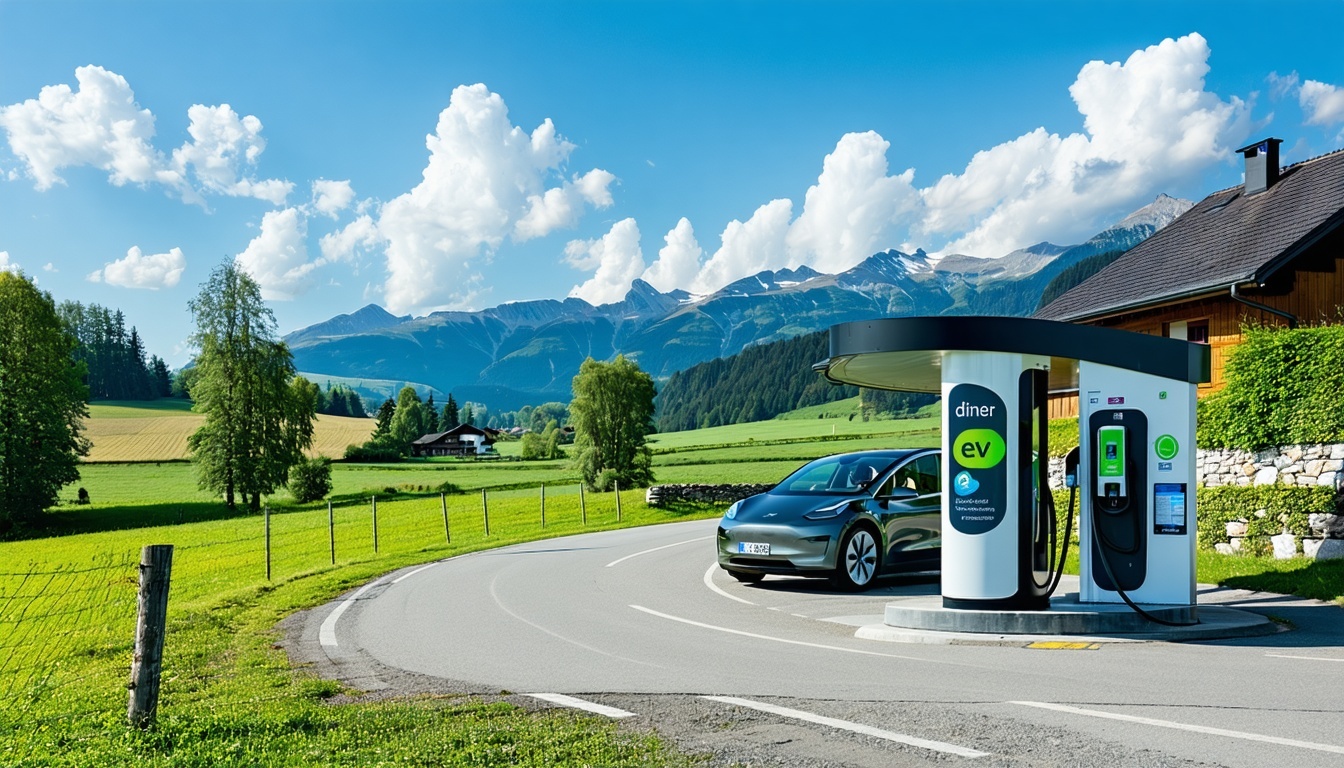Rural America Needs EV Charging, too!

Earlier this year, I reported on The Multiplier Effect of EV Charging Stations. A recent study from the MIT Sloan School of Management published in Nature Communications showed that EV charging stations boosted annual spending at nearby businesses in the range of .8% ($400) to 1.4% ($1,500) depending on a variety of factors.
The typical scenarios for the businesses that can benefit from colocation to EV charging are downtown shopping areas, suburban malls, and highway rest stops – the intersection of high traffic and conveniences to use while charging your EV.
However, rural areas can also benefit from public EV charging according to research from Clean Energy NH that was reported in the CT Mirror. There are two scenarios (at least) that where EV charging can provide an economic boost.
For one, rural residents are often long-distance commuters. Many people who work in Concord (New Hampshire’s capital) or Manchester (its largest city) live 50 plus miles away in small towns nestled in the mountains or lakes regions. The highway leading to the cities don’t have service stations in the rest areas and conveniences are sparse along the rural roads. Commuting with an EV, though doable, requires having charging facilities at home and/or the place of work.
Secondly, the state’s lakes, ski areas, and White Mountain National Park are tourist meccas with lots of visitors driving up from southern New England and New York in the winter, summer and lead-peeping seasons (autumn). The White Mountain Attraction Association tallies 51 charging stations in the region, most of which are located at restaurants, lodging, and ski areas. In comparison, Amherst, MA (where I live) has 80.
Tourism is NH’s second largest sector of its economy. But New Hampshire’s slow approach to building public EV infrastructure could cost the state more than $1.4 billion in tourism revenue by 2031, according to the Clean Energy NH study.
Congress established the National Electric Vehicle Infrastructure (NEVI) program under the 2022 Inflation Reduction Act to provide $5 billion in funds to states to expand the availability of EV charging throughout the country and lower range anxiety among current and future EV owners. Over two phases of the program, competitive grants were to award states up to 80% federal funding for EV infrastructure projects along major roadways and in communities across the country, and states were required to contribute the other 20% of costs, often through private investment.
On February 26, 2025, the Trump Administration suspended the NEVI program, and left many states in limbo regarding their plans to use the Federal funds.
A Tale of Two States
The suspension of NEVI funds has caught many states by surprise. Despite campaign rumblings that the new administration was going to put the brakes on EV programs, the funds were authorized by Congress and were committed to the states.
Massachusetts jumped on their application to receive NEVI funds and has already received $50 million in phase 1 and is working with four private contractors to install EV charging along its major highways, which stretch from urban Boston to Cape Cod and the Berkshires – two major tourist destinations. Still in limbo, the state was to receive an addition $13.6M from second phase of NEVI in 2026 as well as a $14.4M Charging & Fueling Infrastructure Grant (from Bipartisan Infrastructure Act) for charging at Park n' Ride commuter lots. Those have been suspended.
New Hampshire filed an application for NEVI funds, but has only been awarded $2.8 million in phase 1. They are to receive another $14.4M in Phase 2, but again, those funds are suspended. New Hampshire is a smaller state than Massachusetts, but speedier action could have delivered most funds they were due in phase 1.
With EVs projected to approach 30% of the cars on New England roads between now and the early 2030s, the study found that New Hampshire will fall behind neighboring Vermont and Maine—its key competitors in the regional tourism market—should it continue to lag in developing EV infrastructure. Seventy Seven percent of all EVs in New England are operated by Massachusetts and Connecticut drivers, according to Clean Energy NH.
With so much at stake, expect to see state Attorneys General to sue the Federal Government for the release of suspended funds. Not only because they were authorized by Congress and the states took the necessary steps to receive them. But because their own fiscal health will depend on it.

Founder, Principal Analyst - Jeff Clark is an experienced, creative marketing executive who has run global marketing teams for profitable technology companies, from start-ups to enterprise industry leaders.
.png?width=388&height=54&name=cleantech%20insiders%20logo-2%20(2).png)
